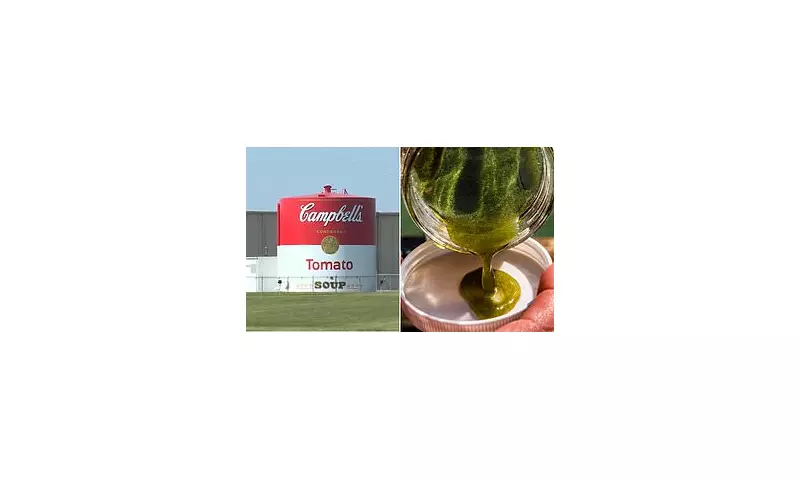
American food giant Campbell's Soup Company finds itself embroiled in two major controversies simultaneously, with court documents revealing systematic environmental violations and a former employee making startling claims about the company's ingredients.
Systematic Environmental Violations Uncovered
In a stunning admission filed in September 2025, Campbell's acknowledged its Napoleon, Ohio canning plant had illegally discharged wastewater into the Maumee River more than 5,400 times between April 2018 and December 2024. This extensive pattern of violations directly contravened federal water pollution laws and represented one of the most significant corporate environmental breaches in recent years.
The Maumee River serves as a crucial waterway that feeds directly into Lake Erie, making the violations particularly concerning for regional ecosystems. Environmental groups had already taken legal action against the company in March 2024, alleging repeated exceedances of effluent limits for various pollutants being released into the river system.
While Campbell's admitted the wastewater exceeded permitted levels and violated both federal and state regulations, the company notably did not concede that the discharges caused actual damage to the river or downstream waters. A trial to determine appropriate penalties and cleanup requirements has been scheduled for 2026.
Pollutants and Environmental Impact
The company's admission detailed that wastewater from the facility contained excessive levels of multiple harmful substances, including:
- Phosphorus and nitrogen
- Ammonia and E. coli bacteria
- Oil and grease contaminants
- Total suspended solids
- Various other regulated substances
Environmental groups presented a much grimmer assessment in their 2024 lawsuit, alleging that Campbell's discharges contributed to harmful algae blooms for 428 days between 2018 and 2022. These blooms can create dead zones in water bodies and pose serious risks to aquatic life and human health.
The legal action was filed under the Clean Water Act, which prohibits discharging pollutants into rivers, lakes, or streams without proper permits. Campbell's National Pollutant Discharge Elimination System permit establishes strict limits on substance levels, and exceeding these limits constitutes automatic violations of federal law, regardless of whether direct harm can be immediately proven.
Bioengineered Meat Allegations Surface
In a separate but equally damaging development, former employee Robert Garza from Michigan came forward this week with claims that he secretly recorded Vice President and Chief Information Security Officer Martin Bally making startling admissions about Campbell's soup ingredients.
According to Garza's account provided to Detroit's Local News 4, Bally could be heard on the recording stating that Campbell's soup contains 'bioengineered meat' and expressing personal concerns about the company's products. 'I don't wanna eat a piece of chicken that came from a 3D printer,' the individual identified as Bally reportedly commented.
In the same recording, the speaker allegedly made derogatory remarks about Campbell's customer base, saying: 'We have s**t for f***king poor people. Who buys our s**t? I don't buy Campbell's products barely anymore. It's not healthy now that I know what the f**'s in it.'
Garza filed a lawsuit on November 20, alleging that he approached his supervisor to raise concerns about these remarks and was terminated several weeks later. Campbell's confirmed that Bally was dismissed following the release of the alleged recording.
Company Response and Fallout
Campbell's has vehemently denied the claims about bioengineered meat, with a company spokesperson telling Daily Mail that their chicken comes from USDA-approved American suppliers and meets all quality standards, including 'No Antibiotics Ever' protocols.
The company described the recorded comments as 'not only inaccurate - they are patently absurd' and emphasised that Bally worked in information technology, having no involvement in food production processes. 'If the recording is legitimate, the comments are unacceptable. They do not reflect our values and the culture of our company,' the spokesperson stated.
Regarding the environmental violations, Campbell's pointed to operational improvements and compliance efforts, noting their long-standing presence in the Napoleon community since 1938. The company expressed hope for reaching a settlement that serves both environmental and community interests.
As both controversies continue to unfold, Campbell's faces significant reputational damage and potential financial liabilities. The scheduled 2026 environmental trial and ongoing employment lawsuit ensure these issues will remain in public view for the foreseeable future, testing consumer trust in one of America's most iconic food brands.





